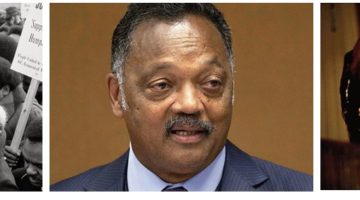Louisville, Ky. (AP) – It wasn’t easy for Nichelle Thurston to save $20,000. She was working as a front desk clerk at the Louisville Water Co., raising four kids with her husband and attending nursing school. But she was also saving money, and diligently so. After a few years, she had enough to buy a food truck.
She created her own website, paid a local artist to design a logo, and, with three employees, began operation as The Seafood Lady.
It took off. Within six months, she had a brickand-mortar restaurant, and today, she and her husband, Luke, operate three establishments.
“I took everything that I had, and put it into my business, and thank God that it became a successful business. Had it not, I would’ve been set back, because I took all of my personal resources to build a business,” she said.
As a Black business owner in Louisville, Thurston is among a small group – one that has dwindled over the years. In 1969, Black people made up 13.3% of Jefferson County’s population, but owned 4.6% of the county’s businesses. Today, although the Black population has grown – to 22.4% – its ownership of businesses has shrunk to 2.4%.
That mark places the city last out of 16 peer cities, according to Greater Louisville Inc. Nationally, based on 2012 census data, 9.4% of businesses are Black-owned, while Black people made up 13.1% of the population age 18 and over.
One of the key reasons for the disparity is the racial wealth gap.
Not all white people have wealth, and not all Black people lack it. However, because of historical factors – including the ability to accumulate wealth for centuries – white people, generally, have significantly more wealth in America than their Black peers. Based on 2016 national data, the median white family has more than 10 times as much wealth as the median Black family, a disparity that is even larger than it was in 1968.
To overcome that disparity and create a stronger, more equitable economy, leaders say the city needs to support Black companies through business accelerators, technical assistance and significant financial support.
“Black people can be very creative and innovative with ideas and skills and abilities, but don’t have the capital to venture with,” Louisville Central Community Centers President Kevin Fields said, “and if they do, it’s going to be more to sustain livelihood than to be a risk-taker and try a business venture.”
BEHIND STARTING LINE
Aaron Barbour, of Dasha Barbour’s Southern Bistro, said when he and his wife, Tumeka Bethel, began their restaurant in 2013, they weren’t able to get any grants, and when Barbour sought a loan, banks often wanted collateral. They weren’t impressed by what he could offer: “I had a car,” he said, “but it wasn’t even worth $1,000.”
Like Thurston, all of their money to start the business came from savings. They received no financial support from their family. Barbour’s father, who is 73 years old, grew up in rural Kentucky, where he was not permitted to eat inside restaurants due to segregation, and Bethel comes from a low-income background in Louisville’s West End.
Both Barbour and Bethel, who are Black, are 40 years old, and both have used the bulk of their 401(k)s to keep their business afloat.
“We’re starting behind the starting line. That makes it hard to get your foot in the door to get the funding that we need because of the role that racism has played. We’re basically starting 200 years behind the competition,” Barbour said. “It’s not impossible to catch up, but it’s definitely catching up when others have a head start.” In “A Path Forward for Louisville,” a petition developed to outline actions and solutions the city can take to support the Black community, leaders call for a $50 million Black Community Fund, part of which would go to financially support Black-owned small businesses – both existing and new ones.
The document states Black people have the ideas to start businesses, “we simply lack the funding needed to build businesses that respond to the economy that we participate in.” While many white people have had the opportunity to accumulate generational wealth for decades and even centuries, many Black people have not, due to slavery and Jim Crow laws that have existed for the bulk of American history. Funding for Black businesses would come from the city, corporations and philanthropy and be essential in the search for equity, said A Path Forward coauthor Sadiqa Reynolds, president and CEO of the Louisville Urban League.













No Comment